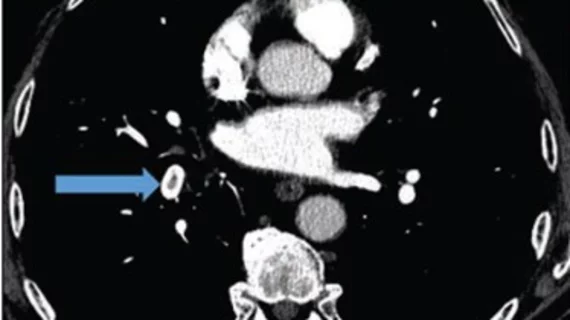AI work list prioritization tool significantly decreases PE turnaround times
An artificial intelligence work list prioritization tool can reduce both turnaround times and exam wait times for patients with CT-detected pulmonary embolus (PE).
In turn, the tool's use could result in patients with positive CT pulmonary angiography (CTPA) exams undergoing expedited treatment, according to experts involved in new research published in the American Journal of Roentgenology.
“By assisting radiologists in providing rapid diagnoses, the artificial intelligence tool could potentially enable earlier interventions for acute pulmonary embolus,” concluded lead researcher Kiran Batra, MD, from the Department of Radiology at University of Texas Southwestern Medical Center in Dallas.
The FDA-approved tool works by reprioritizing CTPA exams to the top of a radiologist’s work list when the scan is positive for PE. To assess the tool’s utility, experts used timestamps from electronic medical records and dictation systems to compare wait times (exam completion to report initiation), read times and report turnaround times prior to and following its implementation.
The team used a total of 2,501 exams—1,166 pre-AI and 1,335 post-AI—for their analysis. When comparing the two time periods, researchers noted that the tool’s use resulted in 12.7% of CTPA exams being moved to the top of the reading radiologist’s list. For PE-positive exams, this move rendered significantly shorter report turnaround times (47.6 vs 59.9 minutes) and mean wait times (21.4 vs 33.4 minutes) but did not impact mean read times.
This finding was even more pronounced in wait times during regular operational hours, with a difference of 28.4 minutes between pre- and post-AI waits.
The results suggest that the use of similar work list prioritization tools could improve outcomes in patients with PE by enabling providers to initiate treatments, such as anticoagulation therapy, sooner, the study authors noted.
To learn more about the work, click here.

